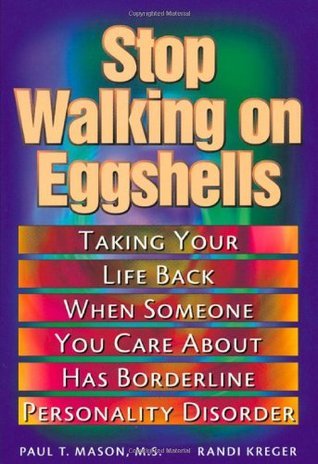Stop Walking on Eggshells Book Summary
Taking Your Life Back When Someone You Care about Has Borderline Personality Disorder
TL;DR
"Stop Walking on Eggshells" is a self-help guide for those affected by a loved one's borderline personality disorder (BPD), offering insights and strategies for coping while maintaining personal well-being.
What is Stop Walking on Eggshells about
"Stop Walking on Eggshells" serves as an essential resource for family members and friends of individuals suffering from borderline personality disorder (BPD). The authors, Paul T. Mason and Randi Kreger, aim to demystify BPD, providing readers with a deeper understanding of the disorder's impact on relationships. They share practical advice to help caretakers navigate emotional challenges, establish healthy boundaries, and prioritize their own mental health. This guide is not just about managing the complexities of interacting with someone with BPD but also emphasizes self-care and empowerment, encouraging readers to reclaim their lives.
Stop Walking on Eggshells 8 Key Takeaways
Understanding BPD
The book begins with a comprehensive overview of Borderline Personality Disorder, explaining its symptoms and how it affects not only the individual suffering but also their loved ones.
The Importance of Boundaries
Readers learn the significance of setting healthy boundaries, which enables them to maintain their own mental health while supporting their loved ones.
The 3 C's of BPD
The authors introduce the 3 C's: "I didn't cause it, I can't control it, I can't cure it," emphasizing that caretakers must recognize their limitations in managing the disorder.
Self-Care Strategies
Practical self-care techniques are provided to help caretakers detach emotionally while remaining supportive, promoting the importance of personal well-being.
Communication Techniques
The book offers communication strategies that can help reduce conflict and improve interactions between those with BPD and their loved ones.
Breaking Cycles of Rescuing
It discusses the tendency of caretakers to fall into a pattern of rescuing the individual with BPD and provides steps to break this cycle.
Empathy and Understanding
The authors encourage readers to approach the situation with empathy while maintaining a judgment-free and supportive environment.
Reclaiming Your Life
Ultimately, the book emphasizes that it is possible for caretakers to regain control over their lives and break free from the emotional turmoil associated with BPD.
Top Stop Walking on Eggshells Quotes
- "You didn't cause it, you can't control it, and you can't cure it."
- "Setting boundaries is not about creating distance, but about caring for yourself."
- "Empathy can transform despair into hope."
Who should read Stop Walking on Eggshells?
This book is ideal for family members, friends, or partners of individuals diagnosed with borderline personality disorder (BPD) who seek to understand the disorder better and learn effective coping strategies. Readers will benefit from insights that empower them to set boundaries and improve their mental health while supporting their loved ones.
Stop Walking on Eggshells Best Reviews
- "An invaluable resource for anyone affected by BPD in their lives, combining compassion with practical advice." - Psychology Today
- "Mason and Kreger provide a lifeline for those feeling overwhelmed by the complexities of relationships influenced by BPD." - Mental Health Review
- "A must-read guide that empowers readers to navigate their relationships while prioritizing their own mental health and well-being." - Family Therapy Journal


